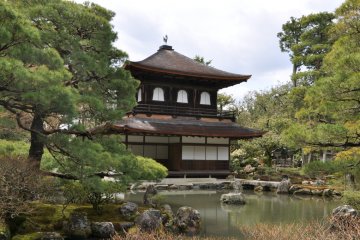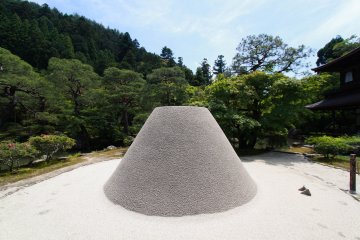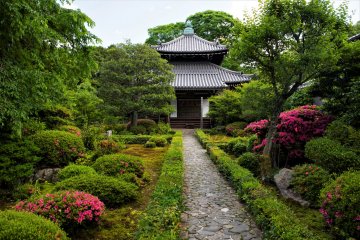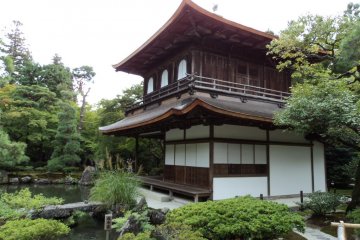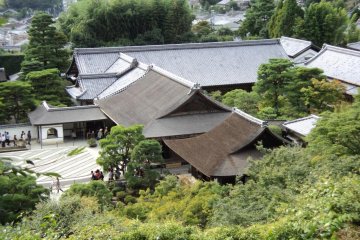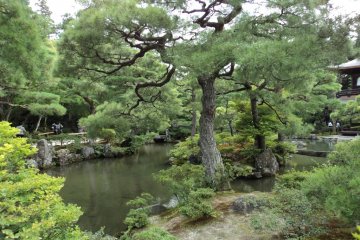Built in 1482, Ginkakuji was originally built near the Eastern Mountains of Kyoto as a retirement villa for Shōgun Ashikaga Yoshimasa. The initial plan was to make something similar to the famous Kinkakuji or Golden Pavilion, located near Kyoto’s northern mountains, which belong to Yoshimasa’s grandfather, Ashikaga Yoshimitsu. Instead of covering the pavilion with gold, Yoshimasa wanted to use silver. During its construction, the work had to stop due to the Ōnin War. The initial plan to cover the pavilion with silver was never completed before the death of Yoshimasa in 1490. It was then decided to leave the pavilion as it was when its owner died. The Pavilion was later transformed as a Zen temple.
Today Ginkakuji is famous not only for its main building but also for smaller temple buildings, a moss garden and a beautiful Zen garden in which the focus point is the sand mound representing Mount Fuji. Around this mound are sand raked waves referring to a view from the moonlight. This garden requires the work of many employees truly dedicated keeping it in good condition, and you will surely see one of them when you visit the temple.
A visit at Ginkakuji offers visitors a nice break from the busy city. Visitors can slowly walk around the gardens, take pictures and enjoy the quiet atmosphere. It is not possible to enter to pavilion or any structures inside the site. Visitors are instead invited to walk outside and watch the main Pavilion from different views in the garden. I would not recommend visiting the Ginkakuji during a rainy day since the visit takes place outside.
If you are spending only a couple of days in Kyoto, visiting the Golden Pavilion might be more interesting. I would recommend visiting Ginkakuji only if you spend a long time in Kyoto, or as a second-trip option. I visited this Pavilion during my second trip to Kyoto and only visited the Golden Pavilion during my first trip there. In my opinion, the Kinkakuji is far more beautiful and also more recognizable in pictures.
Admission is 500 yen for adult and 300 yen for children. It is open from 8:30 to 17:30 and from 9:00 to 16:30 from December to February)



